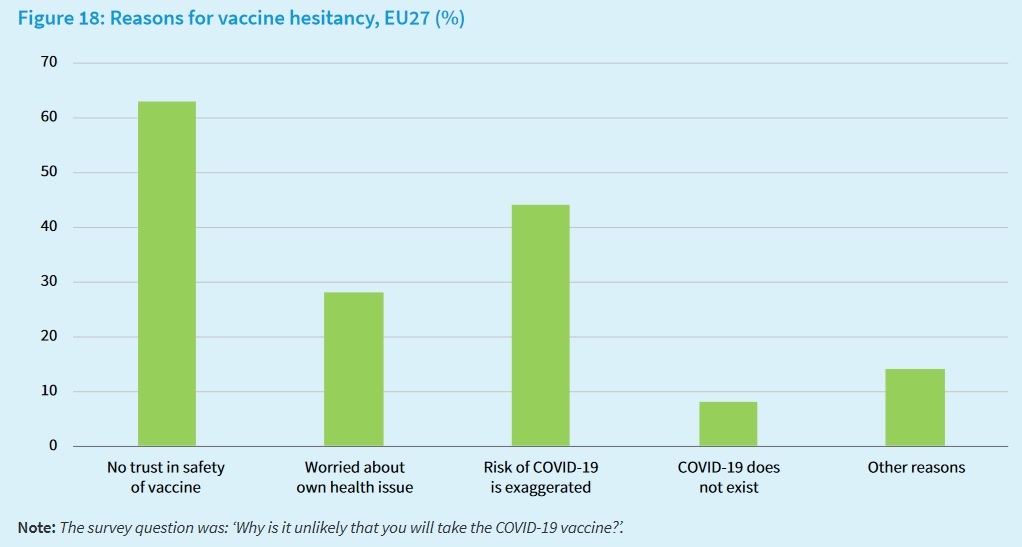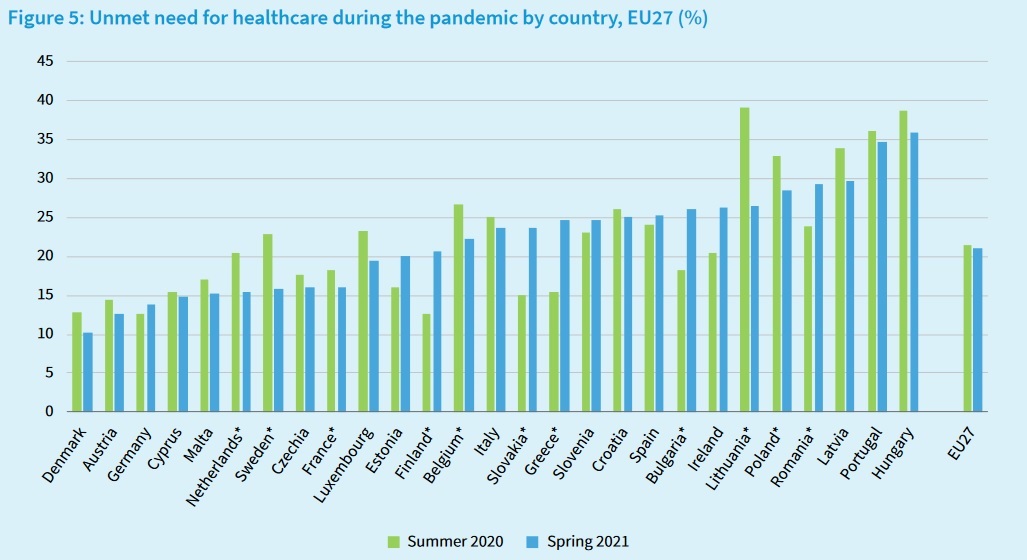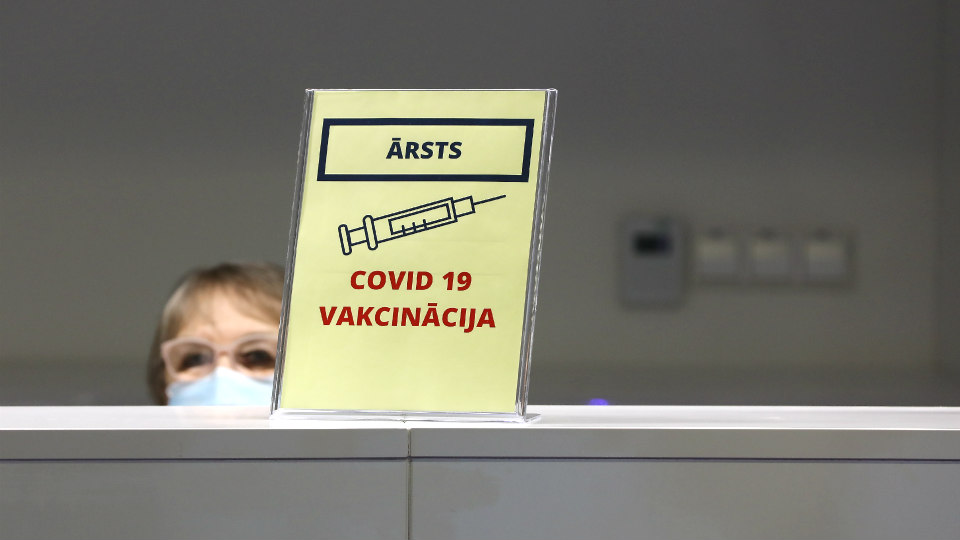A public opinion poll conducted in the countries of the European Union shows that Latvians are relatively skeptical about the need to be vaccinated in order to protect themselves from Covid-19. According to the survey, only 45% of the population are ready to be vaccinated against Covid-19. Only Bulgaria had an even lower rate.
Public opinion poll was commissioned by the EU agency Eurofound. Citizens in the European Union are generally positive about Covid-19 vaccination: almost two-thirds (64%) have expressed a willingness to be vaccinated when the vaccine is available. 27% of respondents who do not want to be vaccinated against Covid-19 thought otherwise. The others have not yet decided.
Readiness to vaccinate against Covid-19 in different EU countries
Foto: Eurofound
–
–
In Latvia, these indicators differ significantly from the EU average. 35.6% said they would very likely be vaccinated against Covid-19, and another 9.2% said they would rather be vaccinated. Thus, in total, 44.8% of the survey participants expressed readiness to be vaccinated.
In contrast, 30.6% said they would almost certainly not be vaccinated against Covid-19; another 17.2% said they would not vaccinate. Thus, in total, almost half (47.8%) of the population do not want to be vaccinated against Covid-19.
Less objections in Lithuania and Estonia
This figure is higher than it was recorded in a similar survey in Januaryperformed by SKDS on behalf of LSM.lv. At that time, readiness to vaccinate was expressed by 50% of the surveyed population, but 38% of respondents did not want to be vaccinated.
Only Bulgaria has an even higher rate of vaccination opponents, where 61% of the population do not want to be vaccinated against Covid-19. In Lithuania and Estonia, the figure is around 34%. In Ireland, on the other hand, it is only 10%.
Survey data show that the willingness to be vaccinated is greatly increased if a person personally knows someone who has died of Covid-19. In this group, only 19% of respondents said they did not plan to be vaccinated anyway.
Of the various population groups, the lowest number of denials of vaccination is among students (13%), but the highest opposition to vaccination and the unemployed (39%) and people with chronic diseases (39%).
Harmful effects of social media
The results of the survey show that the desire to be vaccinated is most negatively influenced by the regular use of social media. Among people who use social media as their main source of news, 40% of respondents do not want to be vaccinated. The study emphasizes that the results also reflect a failure to provide the public with convincing and clear communication on the efficacy and safety of vaccines.

The main argument of opponents of vaccination is concerns about the safety of vaccines
Foto: Eurofound
–
–
Opponents of vaccination cite doubts about the safety of the vaccine as the main reason for not wanting to be vaccinated (62%). The survey was conducted in February and March, and it is significant that the number of vaccination opponents increased significantly after the appearance of isolated cases of blood clots after vaccination.
This hardly affected the 44% of vaccination opponents who believe that the threat posed by Covid-19 is exaggerated; in contrast, 8% of vaccination opponents claim that such Covid-19 does not exist at all.

29% of respondents in Latvia have admitted that they have not received any medical services due to the pandemic
Foto: Eurofound
–
–
A number of other questions were also asked in the Eurofound survey, such as the availability of healthcare during the Covid-19 pandemic. 29% of survey participants in Latvia have admitted that they have not received any of the necessary medical services due to the pandemic. This is one of the highest rates among EU countries.
–
Highlight text and press Ctrl+Enterto send the text to be edited!
Highlight text and press Report a bug buttons to send the text to be edited!
–
–


